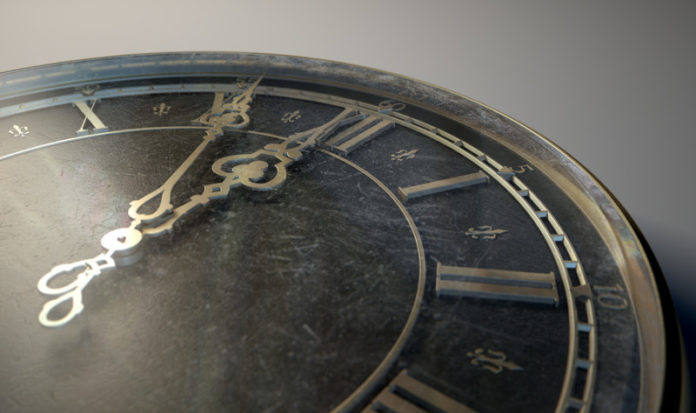
Time perception is highly subjective and usually depends on the relevant situation so that, for instance, your sense of how fast or slow time is passing can be influenced by whether you are waiting for something or if a deadline is approaching. Patients suffering from depression appear to experience time differently than healthy individuals. Statements made by corresponding patients indicate that for them time seems to pass extremely slowly or even stands still. Psychologists at Johannes Gutenberg University Mainz (JGU) have collated relevant studies on the subject to analyze them in a so-called meta-study. What they found was that, in comparison with healthy individuals, depressed individuals actually do have a subjective feeling that time is passing more slowly. However, when asked to judge the duration of a specific time interval, such as two seconds or two minutes, their estimates are just as accurate as those of healthy subjects.
Sven Thönes and Dr. Daniel Oberfeld-Twistel of the Institute of Psychology at Mainz University looked at the results from 16 individual studies in which 433 depressed subjects and 485 non-depressed control subjects participated. “Psychiatrists and psychologists in hospitals and private practices repeatedly report that depressed patients feel that time only creeps forward slowly or is passing in slow motion,” reported Oberfeld-Twistel. “The results of our analysis confirm that this is indeed the case.” Initial scientific surveys on the subject were performed as early as the 1940s. The earliest study analyzed by the Mainz-based psychologists dates from 1977.
In the second part of their meta-analysis, Thönes and Oberfeld-Twistel examined subjective estimates of how long events last. In these studies, the subjects were asked, for example, to estimate the duration of a movie in minutes, press a button for five seconds, or discriminate the duration of two sounds. The results obtained for the depressed subjects were exactly the same as those for the healthy ones without any relevant statistical difference. “We found strong indicators that in depressed individuals the subjective feeling of the passage of time differs from the ability to assess the actual duration of external events,” concluded Oberfeld-Twistel, summarizing the findings.
Thönes and Oberfeld-Twistel identified several aspects of the relation between depression and time perception that have not yet been investigated adequately. Little is actually known about the effects of antidepressants and psychotherapy, or how patients with bipolar disorders compared to non-bipolar depression assess the passing of time. In the view of the authors of the meta-study, future studies in the field need to clearly differentiate between the subjective perception of the passage of time and the ability to estimate the length of precisely defined time intervals.
Story Source:
The above story is based on materials provided by Johannes Gutenberg Universitaet Mainz. Note: Materials may be edited for content and length.
Journal Reference:
- Sven Thönes, Daniel Oberfeld. Time perception in depression: A meta-analysis. Journal of Affective Disorders, 2015; 175: 359 DOI: 10.1016/j.jad.2014.12.057
